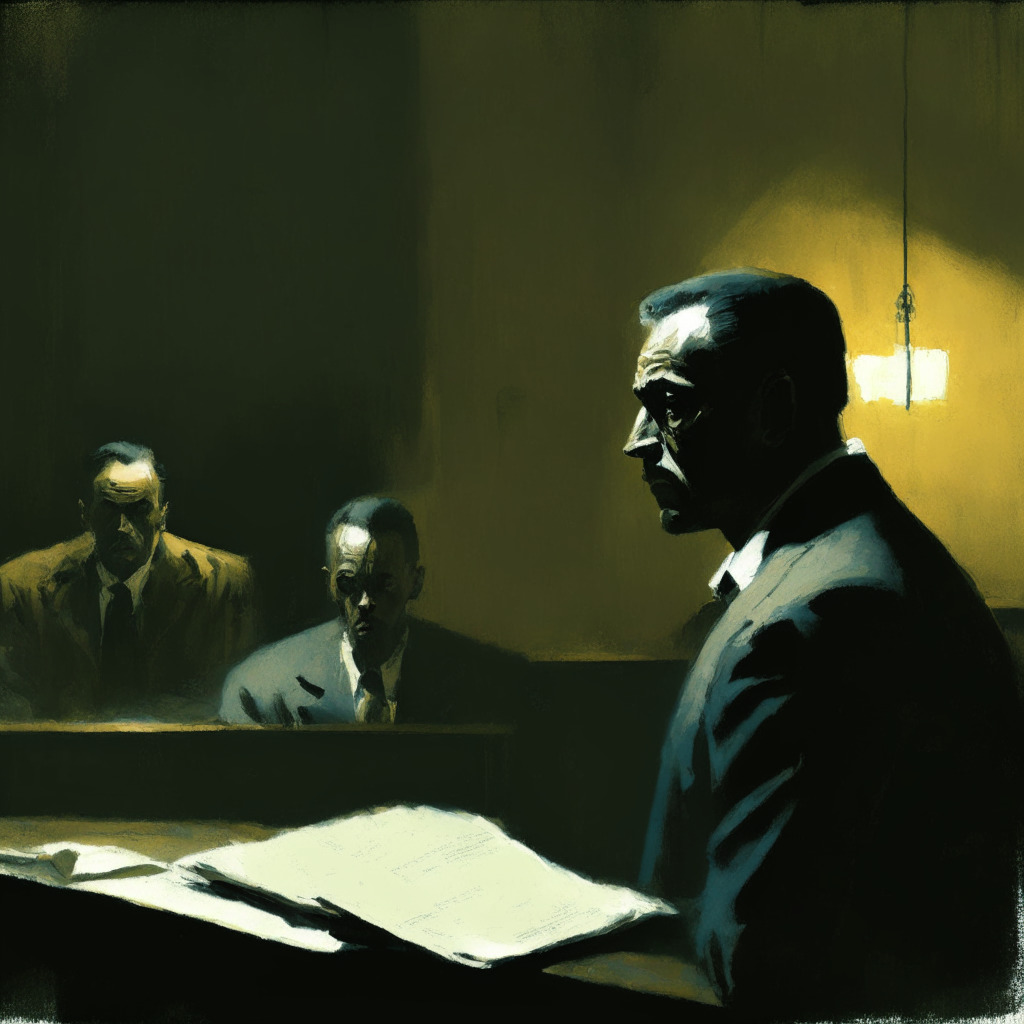Sam Bankman-Fried, the founder of FTX, has requested that the court seal the personal diary of his former girlfriend and ex-Alameda Research CEO, Caroline Ellison. Apparently, the strings pulling this scenario are more intricate with Bankman-Fried potentially walking back into his prison cell, as stipulated by the U.S. Department of Justice (DOJ). While the reasons are manifold, the top line seems to be his alleged leak of Ellison’s personal diary to The New York Times, spiced up with attempts to tamper with witnesses.
Stepping into this tightrope situation, Judge Lewis Kaplan, who previously slapped a temporary gag order on all parties involved in the case, paused the immediate imprisonment of Bankman-Fried. This gag order was installed to prevent any public outreach that could jeopardize a fair trial. He simultaneously instructed for expedited written submissions from both the defense and the prosecution.
The voice of skepticism in this high-stakes situation has been New York’s Inner City Press. They had previously opposed Bankman-Fried’s bid to seal his co-signers and requested the court for a hearing, if needed. Taking on the prevailing differential treatment for Bankman-Fried, Inner City Press illustrates a clear divide in justice, questioning the seal on documents that Bankman-Fried had already disclosed to The New York Times.
However, there’s another side to the coin. Bankman-Fried’s legal counsel insists that access to these documents ought to be limited to protect their public dissemination. Their case emphasizes the need for exemption from the typical precedent in such situations- weighing privacy over public interest significantly.
As the noose tightens, Bankman-Fried is preparing to face trial in October on various charges including securities and wire fraud. He has a second trial in March next year lined up on additional charges including bank fraud and bribery allegations. To seal or not to seal, we’ll see how this intricate dance of transparency and privacy plays out, undeniably shaping the story of legal frameworks and crypto markets.
Source: Coindesk




